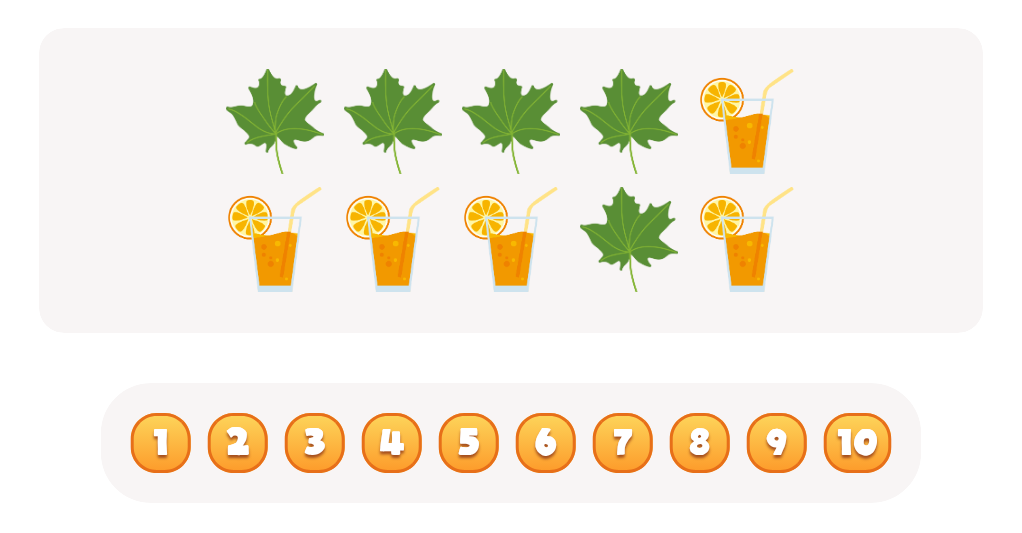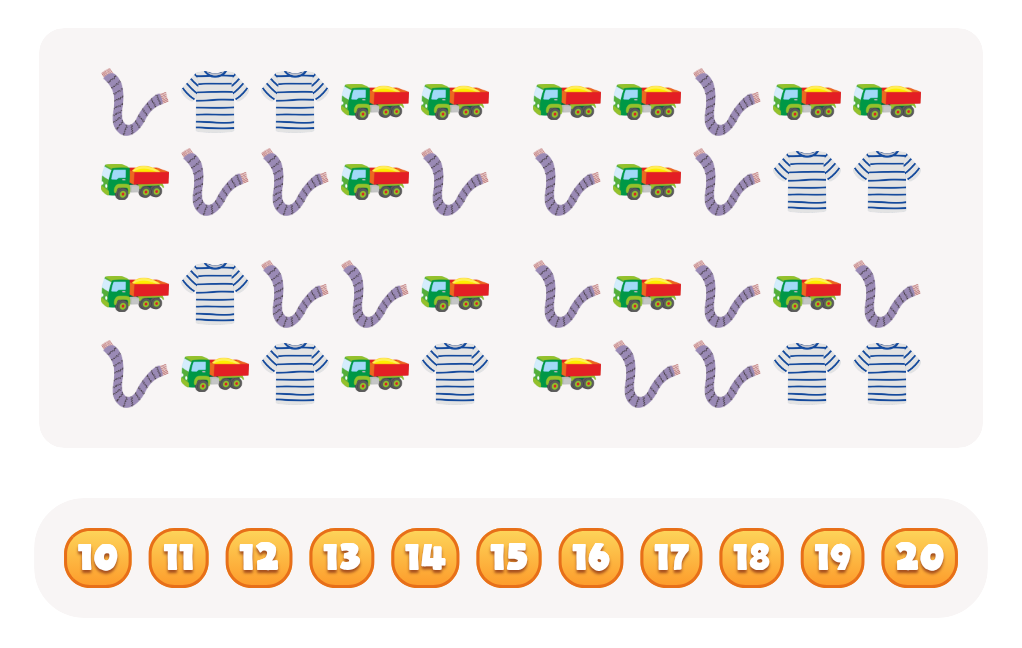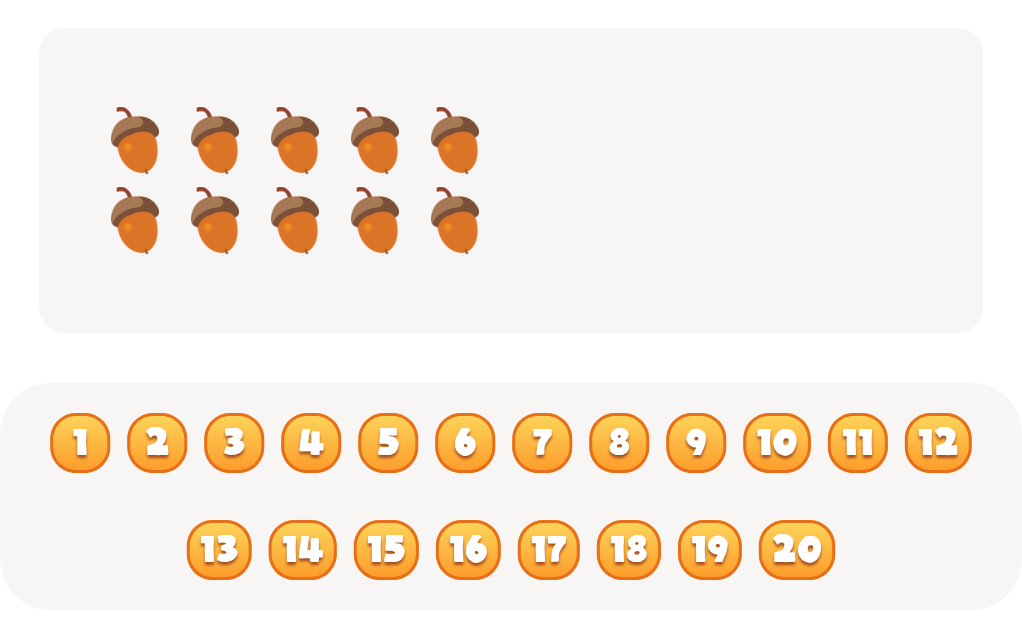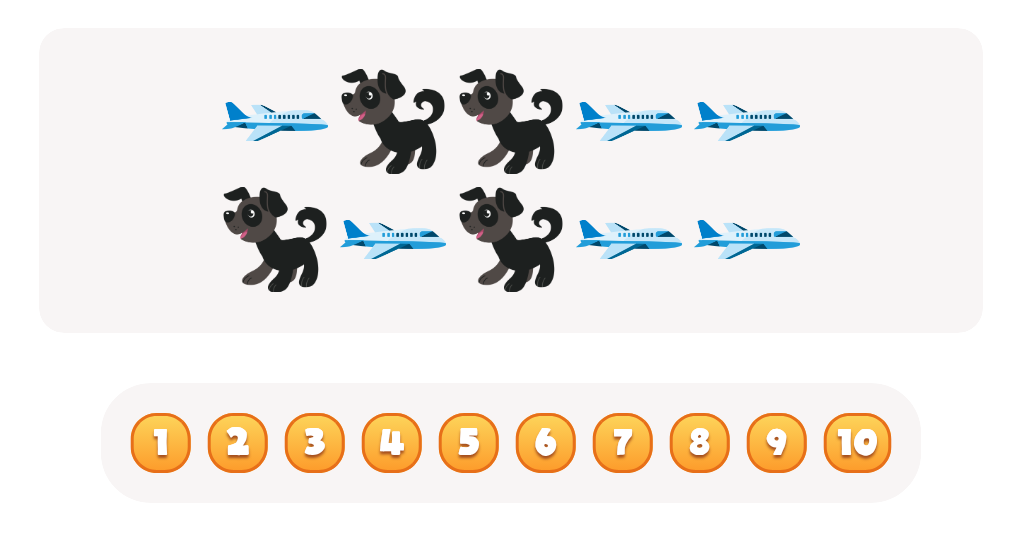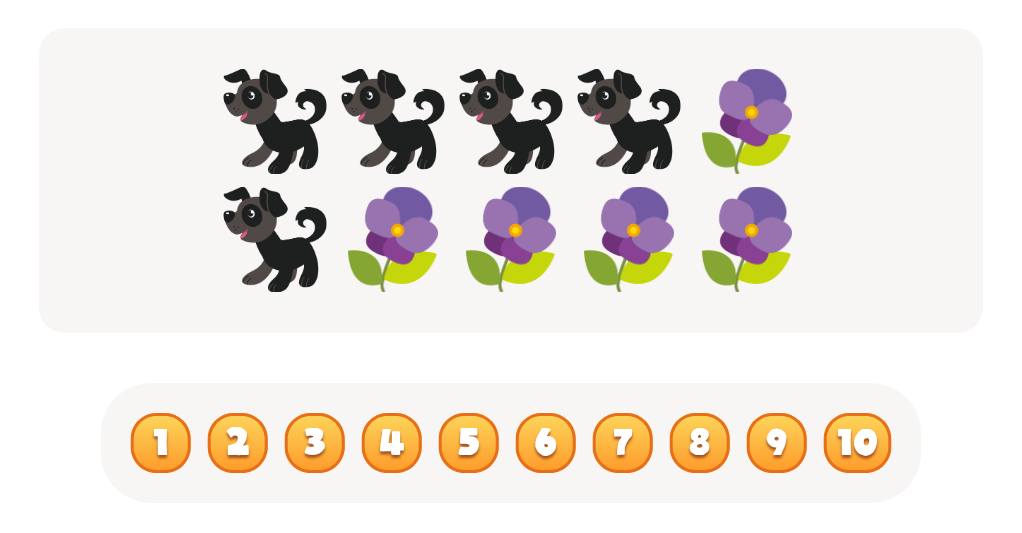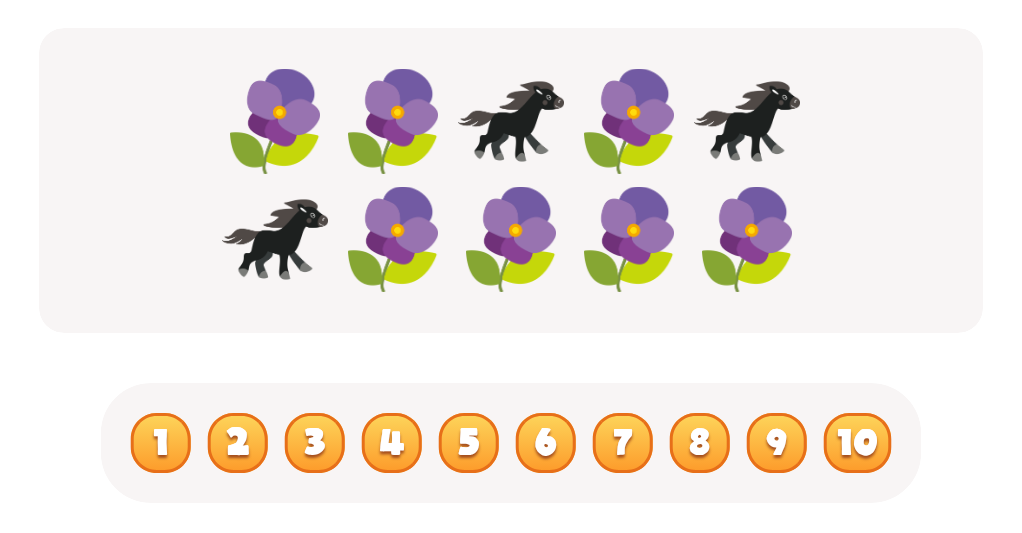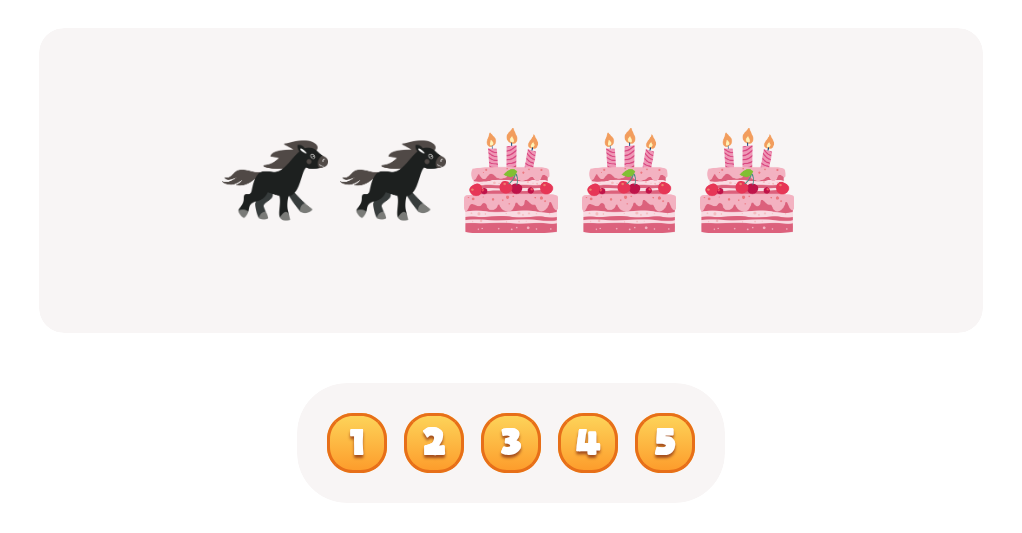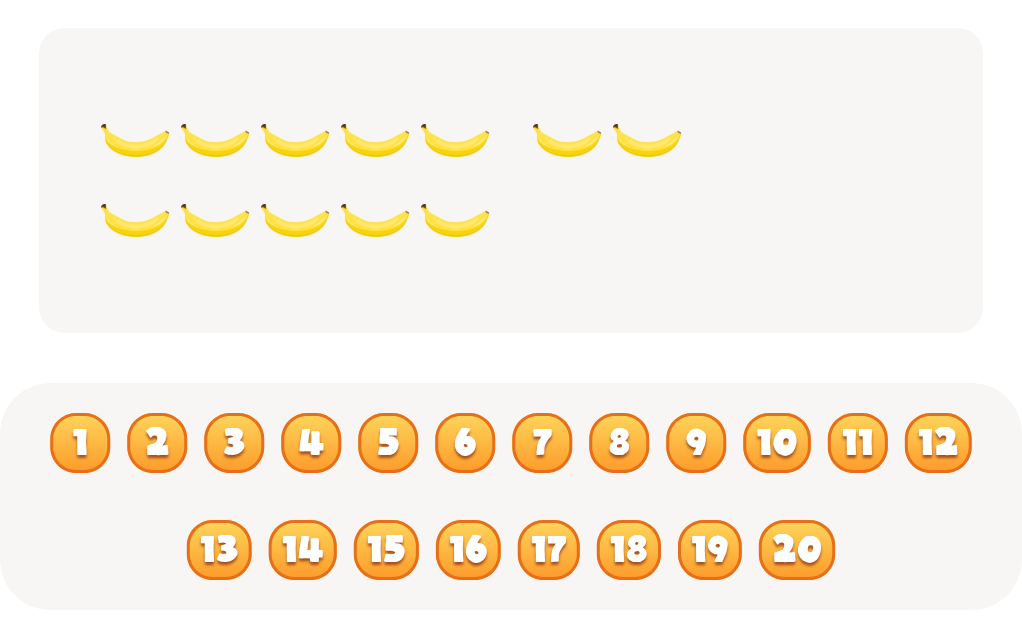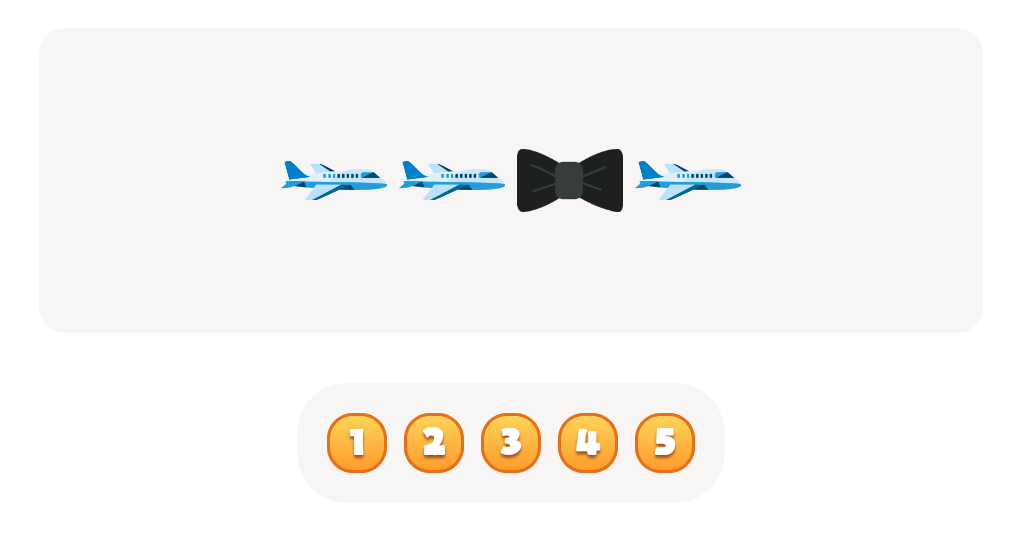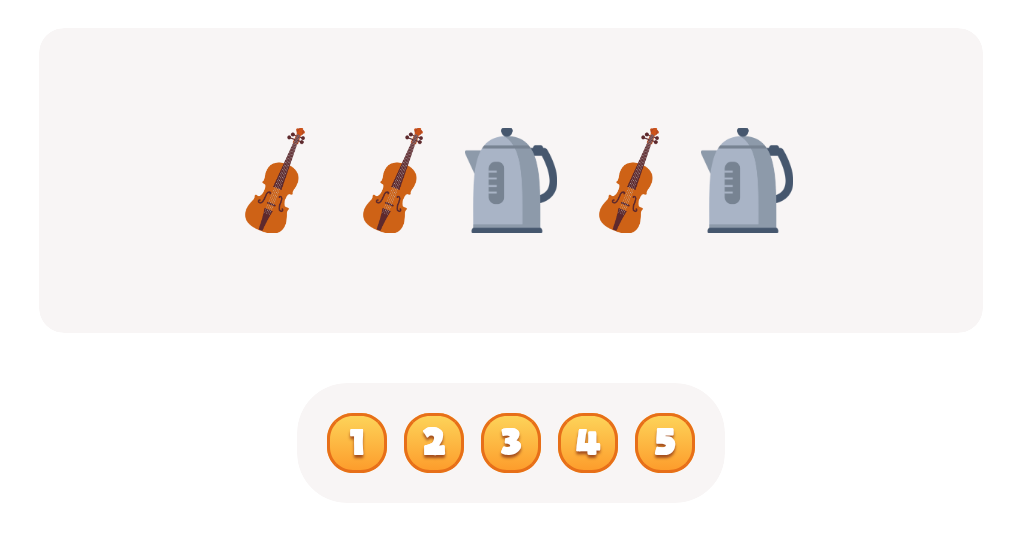Counting skills Kindergarten Counting Worksheets
13 filtered results
-
From - To
Enhance your child's counting skills with our engaging Kindergarten Counting Worksheets! Designed specifically for early learners, these worksheets provide interactive and fun activities that foster number recognition and counting proficiency. With vibrant illustrations and age-appropriate challenges, children can practice counting objects, connect numbers to quantities, and develop essential math skills. Our resources are perfect for classroom use or at-home learning, ensuring your little ones gain confidence in their counting abilities. Explore a variety of worksheets that adapt to different learning styles, making math an exciting adventure. Start building a strong math foundation today with our easy-to-use counting worksheets!
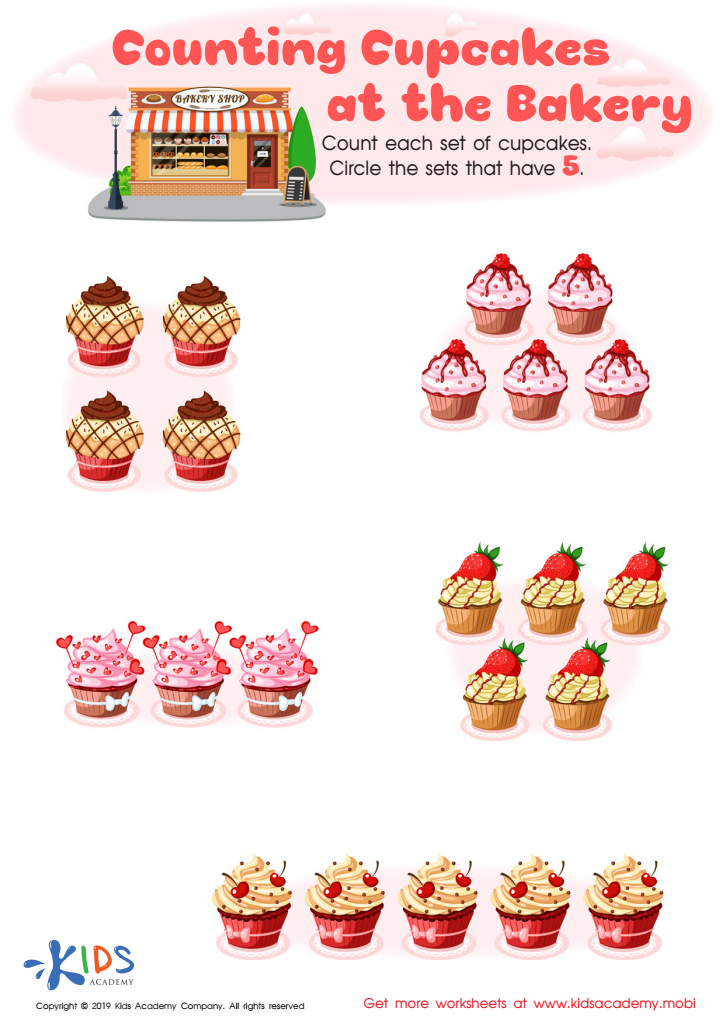

Counting Cupcakes Worksheet
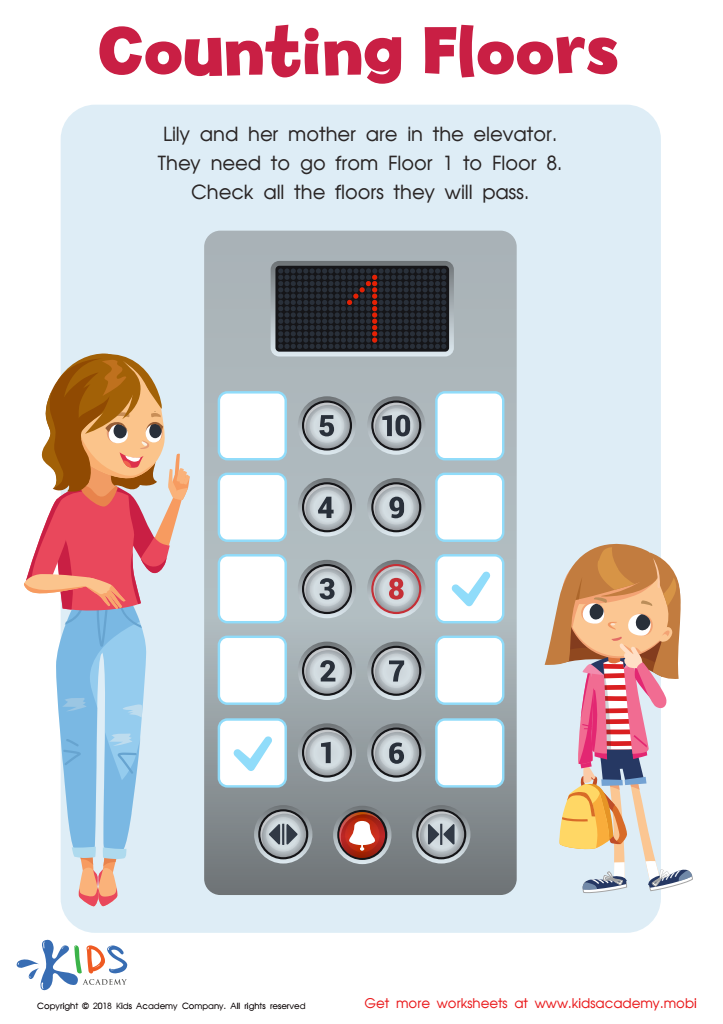

Counting Floors Worksheet
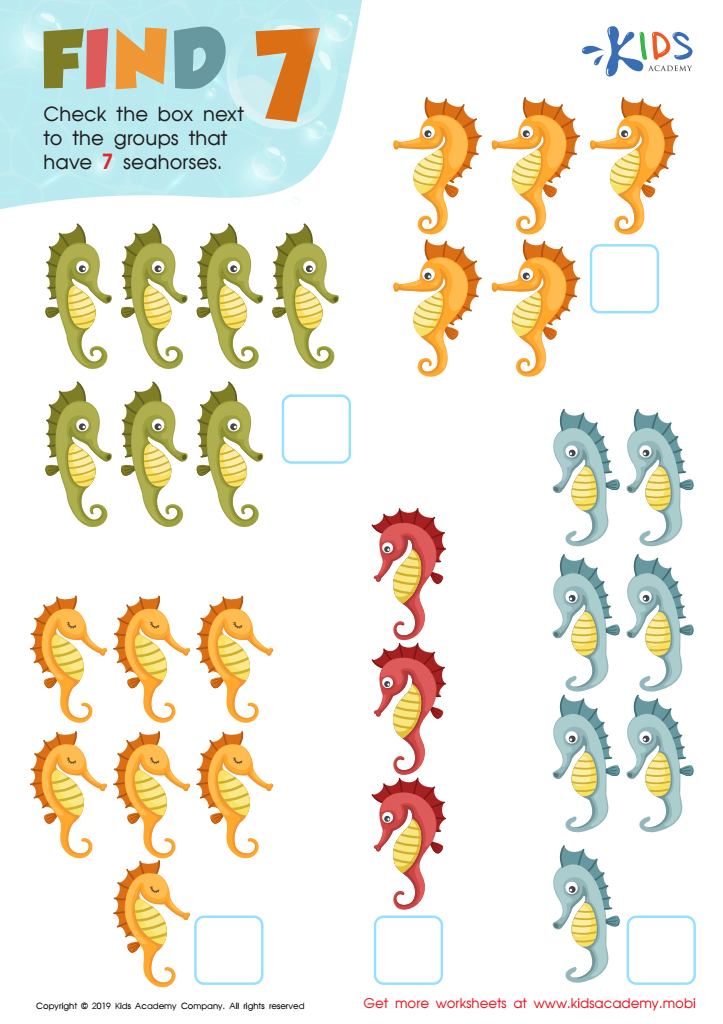

Find 7 Worksheet
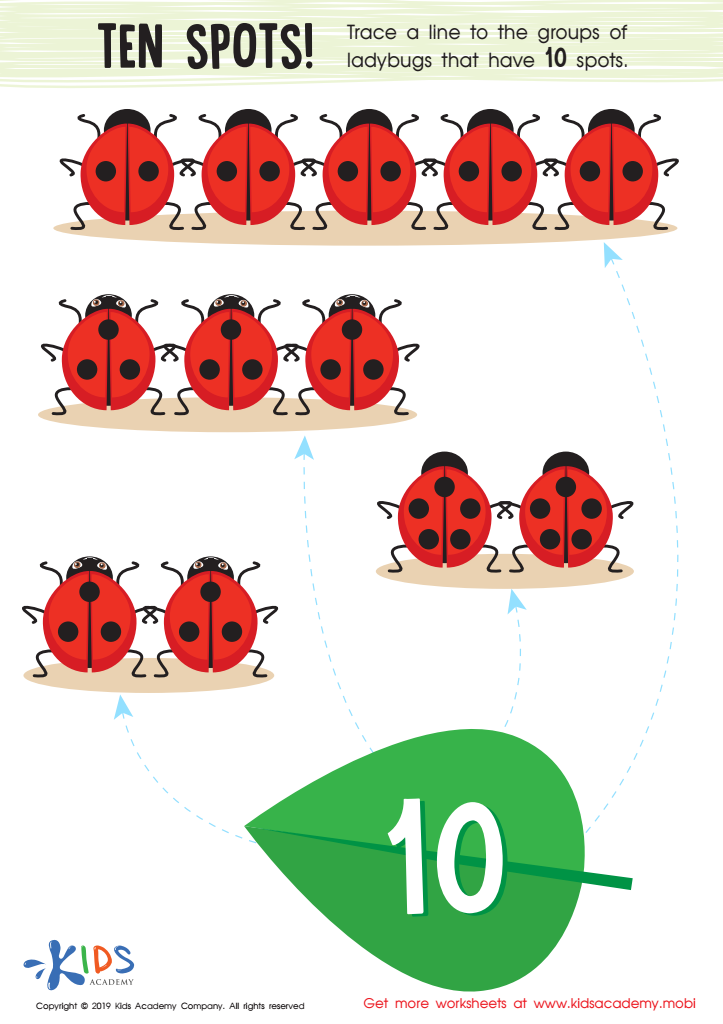

Ten Spots Worksheet
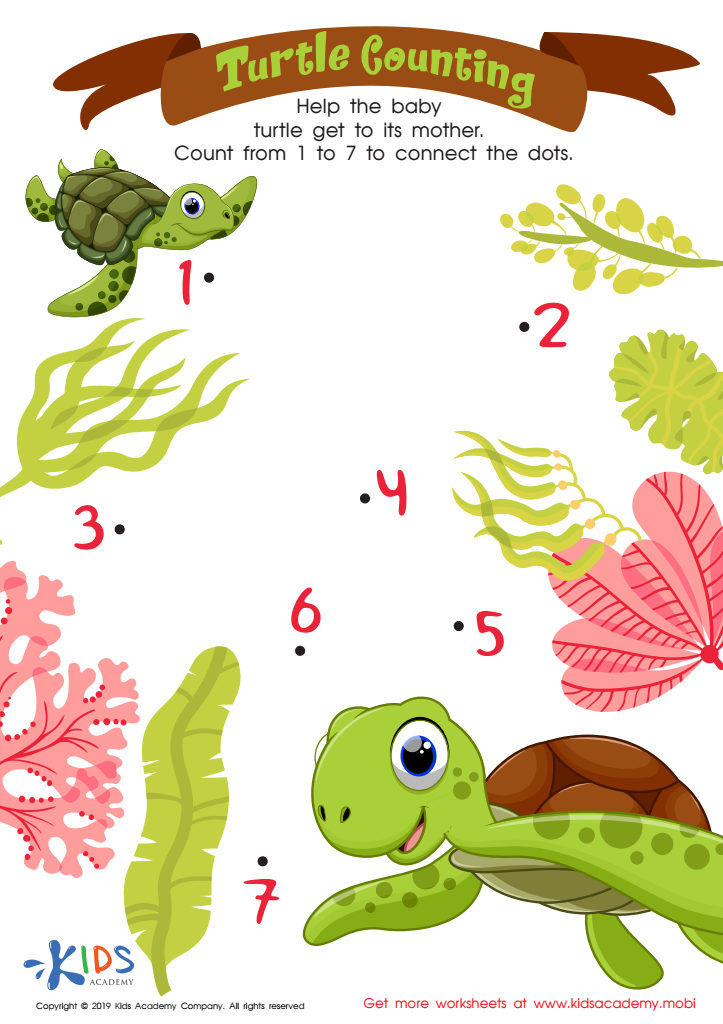

Turtle Counting Worksheet
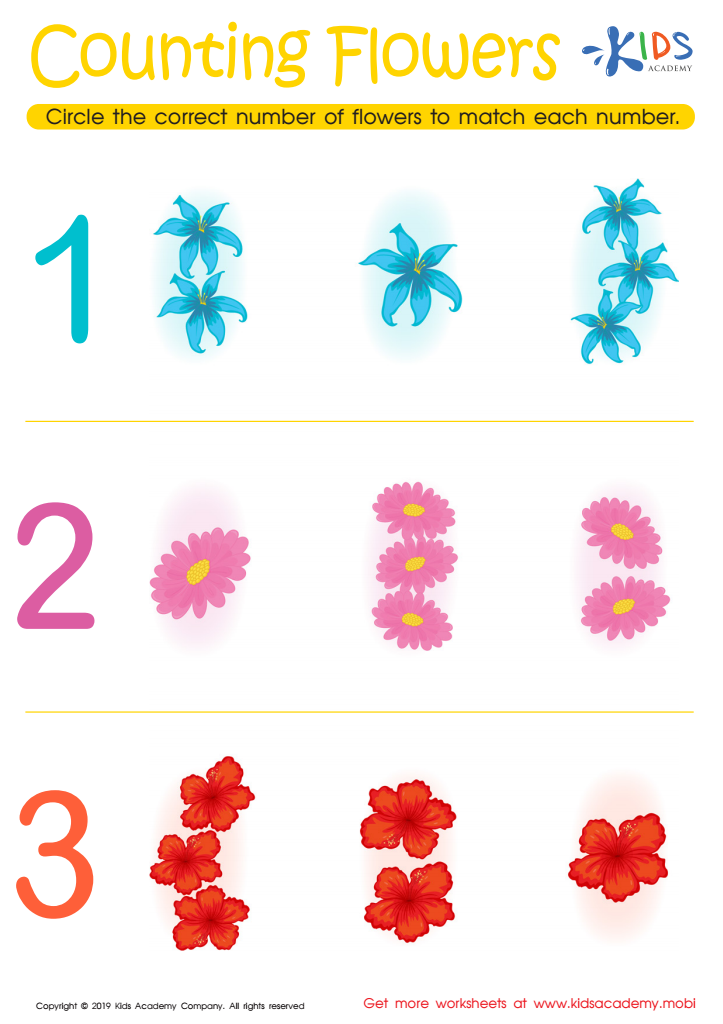

Counting Flowers Worksheet
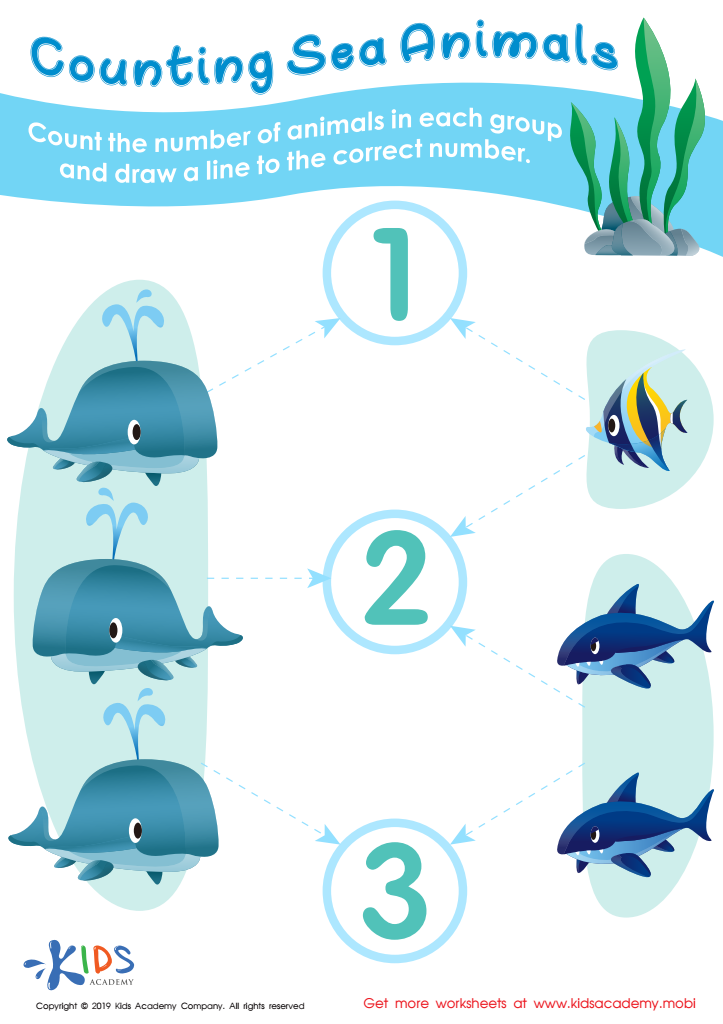

Counting Sea Animals Worksheet


Frog Countdown Worksheet
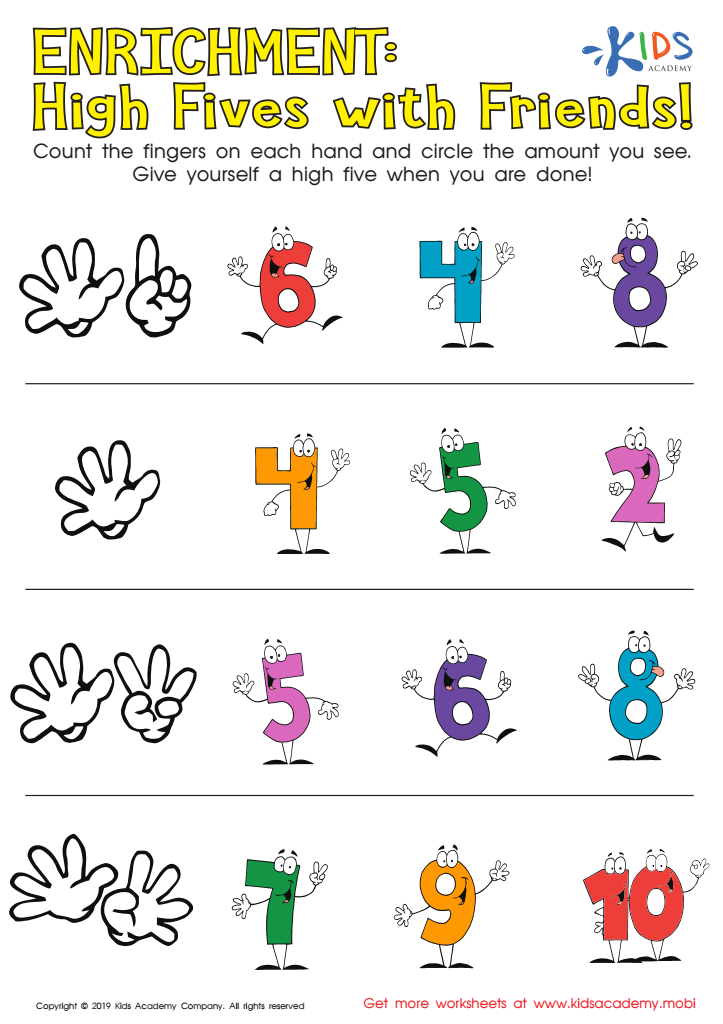

Enrichment: High Fives with Friends! Worksheet
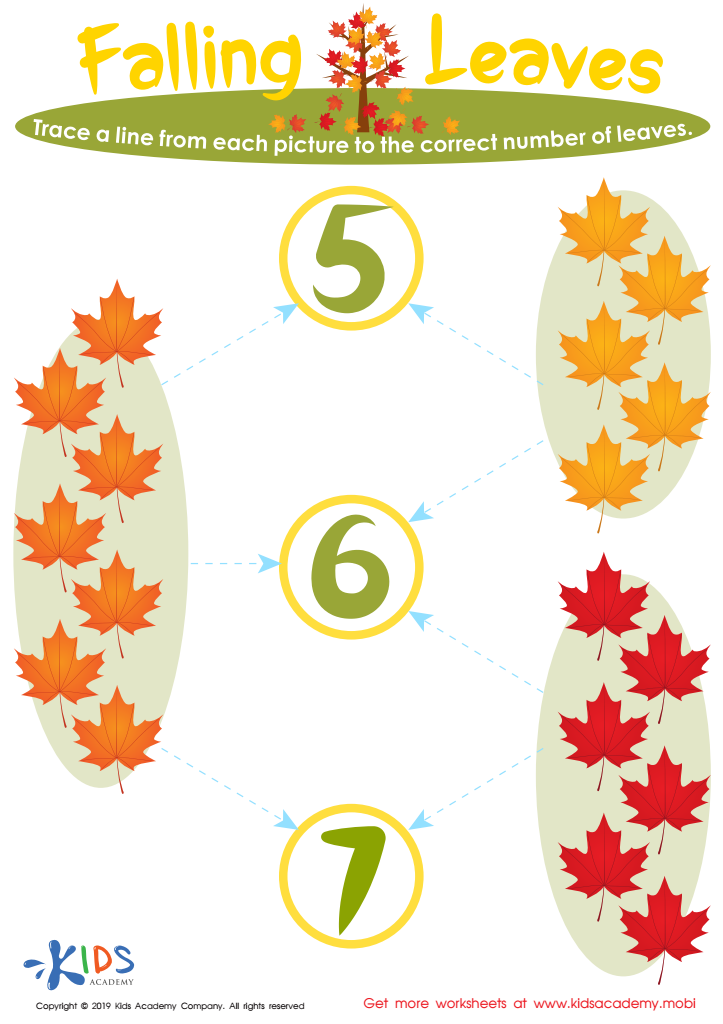

Falling Leaves Worksheet
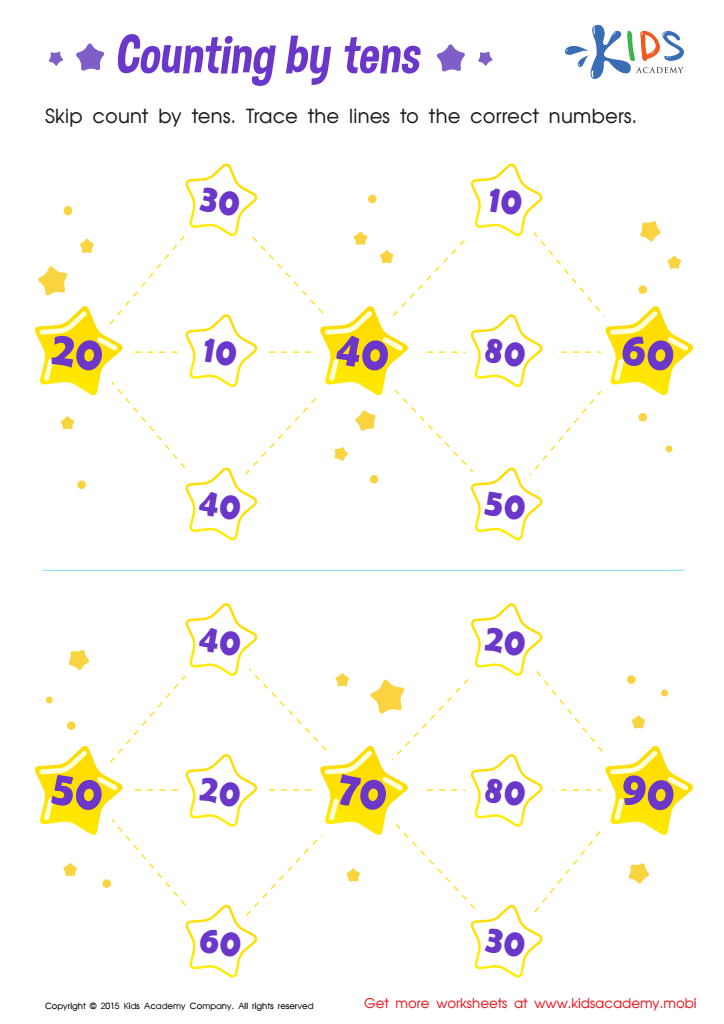

Learn Dozens: Counting by Tens Printable
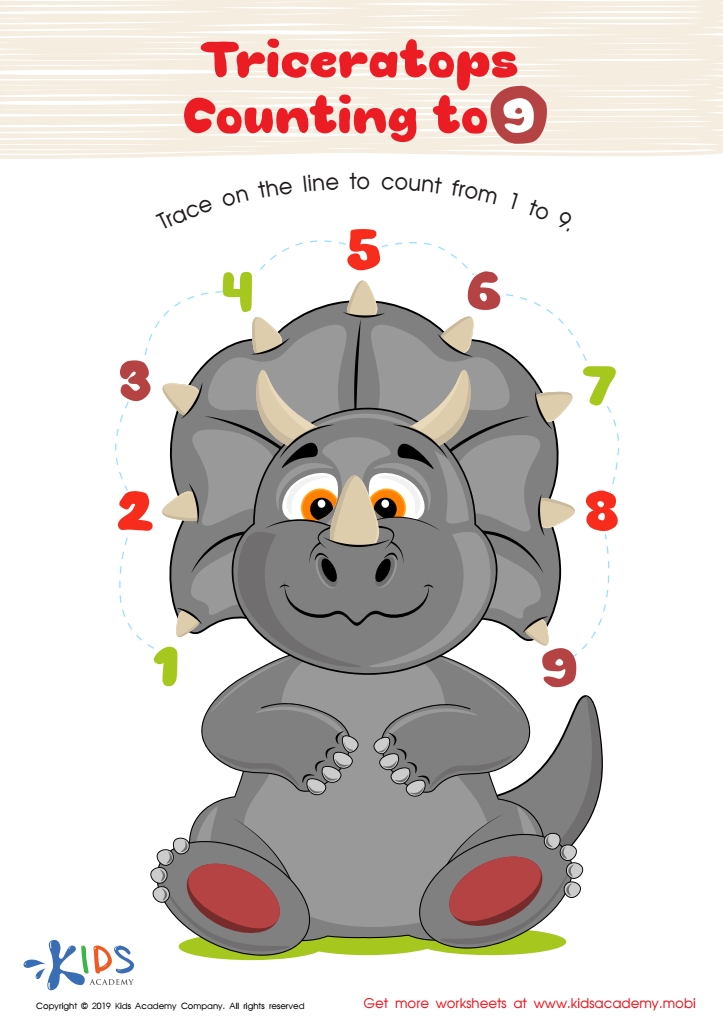

Triceratops Counting to 9 Worksheet
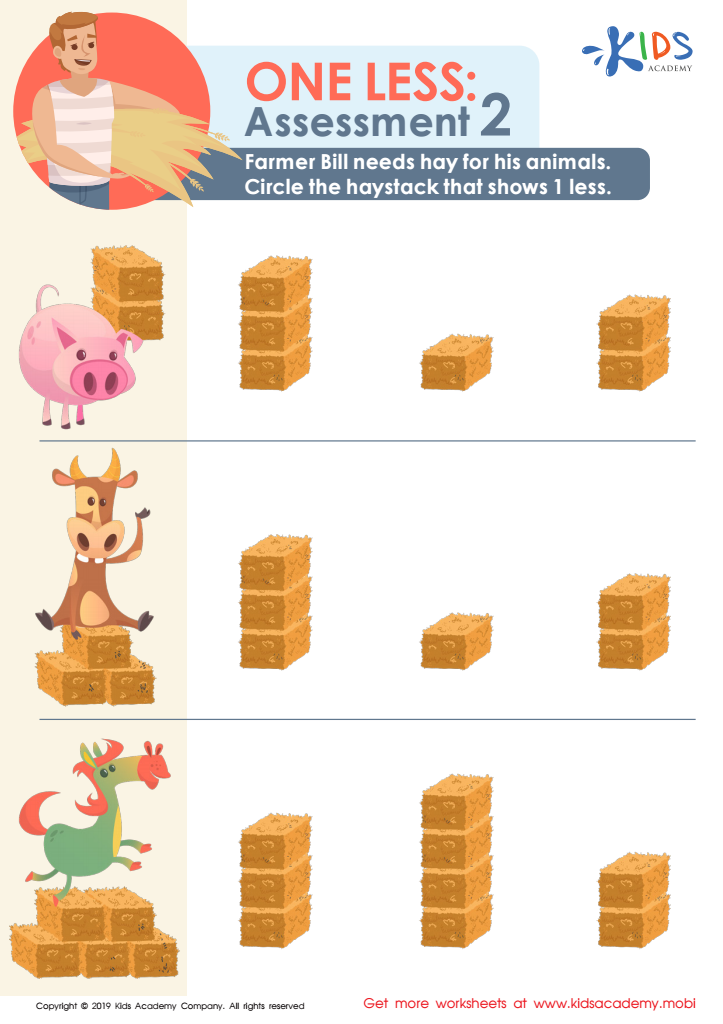

One Less: Assessment 2 Worksheet
Counting skills in kindergarten are foundational for a child's mathematical development and overall cognitive growth. As early as preschool, children engage with numbers, and it is in kindergarten that these skills begin to solidify. Parents and teachers should prioritize counting skills for several reasons.
Firstly, counting lays the groundwork for more advanced mathematical concepts, such as addition and subtraction, which children will encounter in later grades. A strong grasp of counting enhances number sense, making it easier for students to understand quantities and patterns.
Secondly, counting activities often promote critical thinking and problem-solving abilities. Engaging with numbers fosters cognitive development and encourages children to explore relationships between amounts, boosting their analytical skills.
Moreover, involving parents in their child's counting practice strengthens the home-school connection. Fun counting games or activities at home can reinforce what children learn in school, fostering a positive attitude towards math and building confidence.
Lastly, counting skills are relevant beyond academics. Understanding quantities includes essential life skills like playing games, measuring ingredients, or sharing fairly. By prioritizing counting skills, parents and teachers support children in becoming well-rounded learners equipped for the future.
 Assign to My Students
Assign to My Students
